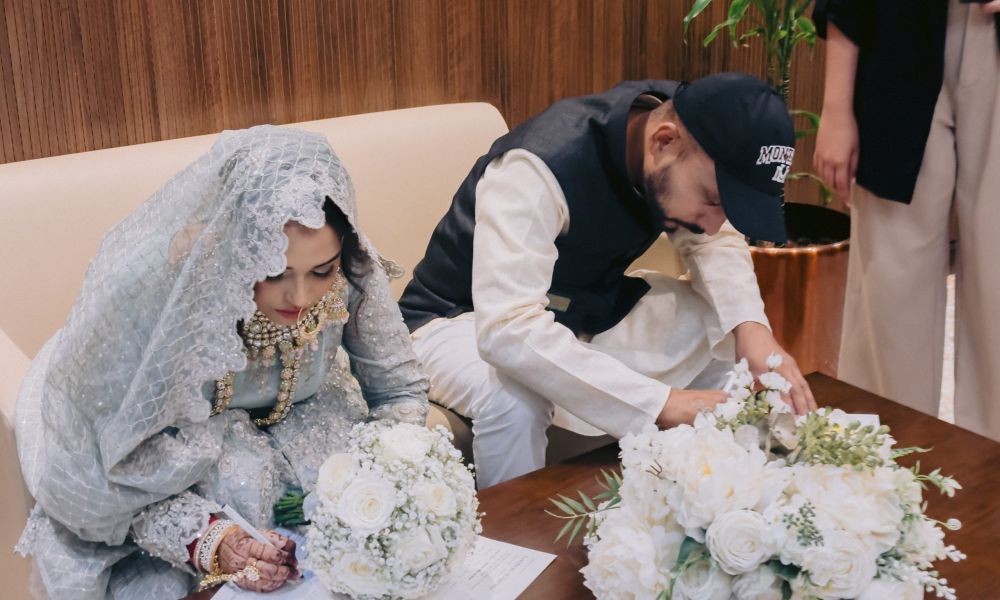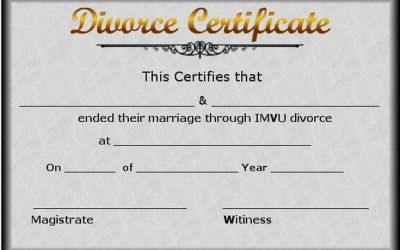
Muslim Can Marry a Christian in Seychelles? How to Effortlessly Do It In 4 Simple Steps
Table of Contents ▼
Many Muslim couples approach wedding planners to help formalize a marriage through Muslim civil marriage and the nikkah ceremony. This way, they can receive international couple benefits while still observing the proper religious protocol for marriage.
In this blog, we’ll cover the Muslim civil marriage process and the necessary paperwork for both ceremonies.
Table of Contents
Muslim Civil Marriage

The recent legal reforms in Dubai have eased the way for foreign Muslims to register their marriages. In fact, a couple can even legitimize their relationships now by opting for a court marriage in Abu Dhabi.
With Muslim civil marriage comes a set of legal rights that protect the two individuals: laws on property division, alimony, and child custody. Plus, there are legal benefits pertaining to inheritance rights, social security, and the option to sponsor each other for visas and residency.
It would not be an issue for Muslims residing in the UAE to arrange a Muslim civil marriage. A court attestation officer is needed to register and finalize a Muslim civil marriage within the UAE for both residents and visitors in Abu Dhabi.
Civil Marriage Eligibility

Under Federal Law No. (41) of 2022 on Civil Personal Status, Article 5 specifies the requirements for a civil marriage:
- Both individuals must be aged 21 or more.
- There must be no familial relationship between the couple.
- In Dubai, one of the individuals must be a resident.
- Both must express their consent to the marriage.
- Proof of being single is required from both parties.
- A disclosure form must be signed by both individuals.
Essential Documents for a Civil Court Marriage
Getting married in a civil court involves a few key items:
- ID
- Passport
- Two male witnesses
Civil vs. Shariah Marriage: A Comparison for Abu Dhabi
| Aspect | Civil Marriage | Shariah Marriage |
| Legal Framework | Regulated by Federal Law No. (41) of 2022 on Civil Personal Status. | Regulated by Islamic Sharia law. |
| Guardian (Wali) Approval | Not required | Required for the bride. |
| Medical Test | Not needed | Required for both individuals. |
| Interreligious Marriage | Permitted under certain conditions | Generally not allowed; usually same religion. |
| Marriage Registration | Registered with Dubai Courts or other relevant bodies. | Registered with Islamic authorities. |
| Application Process | Requires submitting a form to the Authentication Judge. | Follows traditional religious practices. |
| Non-Residents Marriage | Allowed with specific conditions | Usually restricted; may require residency. |
| Documentation Required | ID, proof of residence, and previous marriage certificates. | ID, proof of residence, and religious documents. |
| Marriage Contract Language | Available in both Arabic and English | Typically only in Arabic. |
| Legal Rights and Responsibilities | Outlined by UAE civil law with protections. | Outlined by Islamic law with specific rights. |
Regardless of whether a Muslim civil marriage or Shariah marriage is selected, the entire process will be guided by Easy Wedding.
Why a Civil Marriage is Crucial After a Sharia Marriage

Although Sharia law is foundational for marriages in the UAE, obtaining a civil marriage afterwards is highly recommended. This not only ensures that your marriage is recognized globally but also simplifies the bureaucratic process by eliminating the need for premarital screenings, making future legal and administrative tasks much easier.
How to Arrange Muslim Civil Marriage?
Want to know what are the steps for muslim civil marriage? Here are the step:
Step 1
Conduct your Nikkah and secure MOFA attestation for the certificate in the UAE.
Step 2
Prepare necessary documentation, including passport, IDs, and proof of previous divorce or annulment.
Step 3
Book a date for your civil court wedding.
Step 4
Visit the court on the designated date to complete the marriage process and receive your civil marriage certificate.
Your Abu Dhabi Marriage, Simplified!
Want a smooth Muslim civil marriage in Abu Dhabi?
Opt for a Muslim civil marriage for a simpler path than traditional Shariah procedures. Easy Wedding offers a simpler way to get things done your way.
Contact us today to turn your marriage dreams into reality with ease!
FAQs
Is civil marriage the same as Nikah?
No, civil marriage and Nikah are not the same. Nikah is conducted according to Islamic religious laws and is valid in Islamic countries like the UAE. Civil marriage, on the other hand, is a government-recognized marriage that follows secular, non-religious procedures and is suitable for those who prefer a non-religious ceremony.
Do you need to be a resident of the UAE to get married?
No, being a resident is not a requirement to marry in the UAE. Tourists can also get married there. You just need to complete a marriage application and submit necessary documents like your passport and proof of your current status. These documents will be reviewed before the marriage is approved.
Can a Muslim marry a non-Muslim in the UAE?
Yes, Muslim men in the UAE can marry women from other Abrahamic religions such as Christianity or Judaism. However, Muslim women are traditionally not permitted to marry non-Muslim men unless the man converts to Islam. Recent legal changes now allow Muslim women to marry non-Muslim men through civil court procedures, providing a non-religious alternative.



